Filter by

Spectrum auctions and competition in telecommunications
"CES."Leading experts in industrial organization and auction theory examine the recent European telecommunication license auction experience. In 2000 and 2001, several European countries carried out auctions for third generation technologies or universal mobile telephone services (UMTS) communication licenses. These "spectrum auctions" inaugurated yet another era in an industry that has already…
- Edition
- -
- ISBN/ISSN
- 0262090376
- Collation
- 1 online resource (x, 306 pages) :illustrations.
- Series Title
- -
- Call Number
- -

Social consequences of Internet use :access, involvement, and interaction
Drawing on nationally representative telephone surveys conducted from 1995 to 2000, James Katz and Ronald Rice offer a rich and nuanced picture of Internet use in America. Using quantitative data, as well as case studies of Web sites, they explore the impact of the Internet on society from three perspectives: access to Internet technology (the digital divide), involvement with groups and commun…
- Edition
- -
- ISBN/ISSN
- 9780262256506
- Collation
- 1 online resource (xxiv, 460 pages)
- Series Title
- -
- Call Number
- -
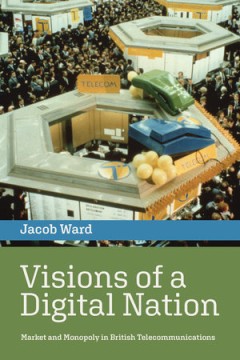
Visions of a Digital Nation: Market and Monopoly in British Telecommunications
Why the privatization of British Telecom signaled a pivotal moment in the rise of neoliberalism, and how it was shaped by the longer development and digitalization of Britain's telecommunications infrastructure. When Margaret Thatcher sold British Telecom for £3.6 billion in 1984, it became not only, at the time, the largest stock flotation in history, but also a watershed moment in the ris…
- Edition
- -
- ISBN/ISSN
- 9780262375528
- Collation
- -
- Series Title
- -
- Call Number
- 384

Cooperative Cognitive Radio Networking: System Model, Enabling Techniques, an…
This SpringerBrief examines the active cooperation between users of Cooperative Cognitive Radio Networking (CCRN), exploring the system model, enabling techniques, and performance. The brief provides a systematic study on active cooperation between primary users and secondary users, i.e., (CCRN), followed by the discussions on research issues and challenges in designing spectrum-energy efficien…
- Edition
- 1
- ISBN/ISSN
- 9783319328812
- Collation
- X, 97
- Series Title
- SpringerBriefs in Electrical and Computer Engineering
- Call Number
- 621.382
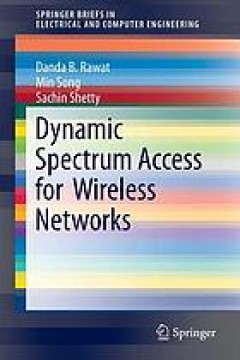
Dynamic spectrum access for wireless networks
This SpringerBrief presents adaptive resource allocation schemes for secondary users for dynamic spectrum access (DSA) in cognitive radio networks (CRNs) by considering Quality-of-Service requirements, admission control, power/rate control, interference constraints, and the impact of spectrum sensing or primary user interruptions. It presents the challenges, motivations, and applications of the…
- Edition
- -
- ISBN/ISSN
- 9783319152998
- Collation
- xv, 69 pages
- Series Title
- -
- Call Number
- 621.382
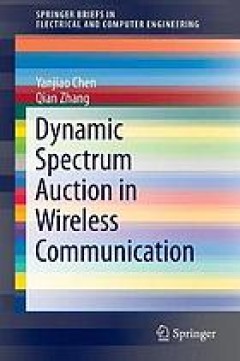
Dynamic spectrum auction in wireless communication
This brief explores current research on dynamic spectrum auctions, focusing on fundamental auction theory, characteristics of the spectrum market, spectrum auction architecture and possible auction mechanisms. The brief explains how dynamic spectrum auctions, which enable new users to gain spectrum access and existing spectrum owners to obtain financial benefits, can greatly improve spectrum ef…
- Edition
- -
- ISBN/ISSN
- 9783319140308
- Collation
- ix, 58 pages
- Series Title
- -
- Call Number
- 621.382

Fundamentals Of Communications Technology
In this module, you will learn several basic concepts of communications systems such as major building blocks of a communication system, properties of electromagnetic (EM) waves, and frequency allocation in communication systems. You can quickly review the important terms used in this module in the glossary at the end of this module. As you work your way through the module, you’ll encounte…
- Edition
- -
- ISBN/ISSN
- -
- Collation
- -
- Series Title
- -
- Call Number
- 621.382 FUN
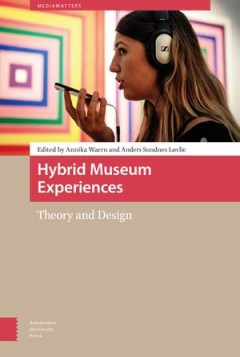
Hybrid Museum Experiences Theory and Design
"So you’re the one getting this gift? Lucky you! Someone who knows you has visited the museum. They searched out things they thought you would care about, and they took photos and left messages for you." This is the welcoming message for the Gift app, designed to create a very personal museum visit. Hybrid Museum Experiences use new technologies to augment, expand or alter the physical experi…
- Edition
- -
- ISBN/ISSN
- 9789048552849
- Collation
- -
- Series Title
- -
- Call Number
- -
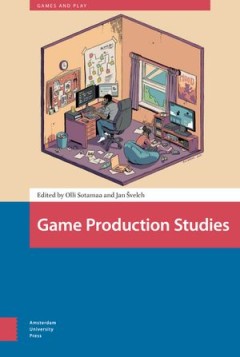
Game Production Studies
Video games have entered the cultural mainstream and in terms of economic profits they now rival established entertainment industries such as film or television. As careers in video game development become more common, so do the stories about precarious working conditions and structural inequalities within the industry. Yet, scholars have largely overlooked video game production cultures in fav…
- Edition
- -
- ISBN/ISSN
- 9789048551736
- Collation
- -
- Series Title
- -
- Call Number
- -

Game Production Studies
Video games have entered the cultural mainstream and in terms of economic profits they now rival established entertainment industries such as film or television. As careers in video game development become more common, so do the stories about precarious working conditions and structural inequalities within the industry. Yet, scholars have largely overlooked video game production cultures in fav…
- Edition
- -
- ISBN/ISSN
- 9789048551736
- Collation
- -
- Series Title
- -
- Call Number
- -
 Computer Science, Information & General Works
Computer Science, Information & General Works  Philosophy & Psychology
Philosophy & Psychology  Religion
Religion  Social Sciences
Social Sciences  Language
Language  Pure Science
Pure Science  Applied Sciences
Applied Sciences  Art & Recreation
Art & Recreation  Literature
Literature  History & Geography
History & Geography